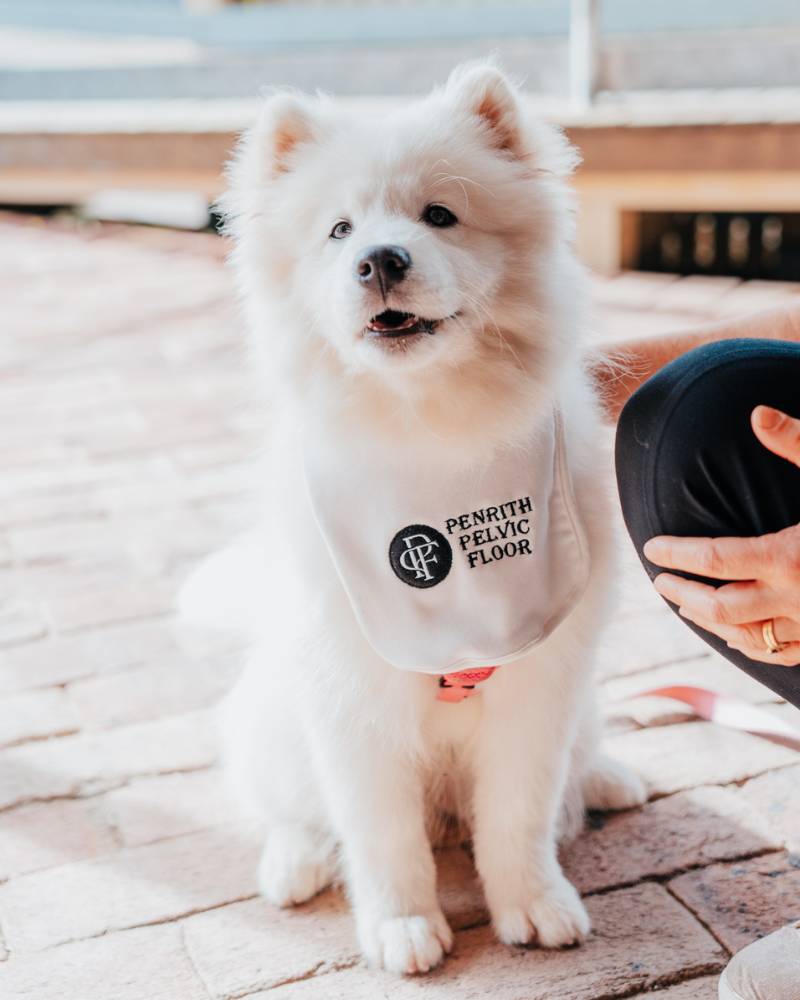Continence Physiotherapy For Children & Teens
If you are seeking quality physiotherapy services for paediatric incontinence and other pelvic health conditions in Penrith and Greater Western Sydney, our team is here to help.
Your Partner In Achieving Better Pelvic Health For Children & Teens
Helping Your Child Stay Dry and Confident With Our Experienced Continence Physiotherapists
Our team of pelvic health physiotherapists treat children and teens with a range of pelvic floor problems.
Children who struggle with continence issues may face teasing, a decline in academic performance, reduced self-esteem, and emotional distress. These issues can also be challenging for parents.
However, the good news is that many of these conditions can be effectively treated or improved with therapy. Find out more below.


How Can We Help You?

Bladder Incontinence
Children's continence physiotherapy can help with a range of issues such as bedwetting, day-wetting and urgency. We can help with a range of strategies that will build your child's confidence.





Bowel Incontinence & Constipation
If your child is having troubles with soiling or constipation, we can help you with strategies to avoid this and help your child identify a 'sneaky or stuck poo' before it becomes an issue.





Online Children’s Continence Assessments
If you live out of area or are unable to reach our clinic, we offer children’s continence assessments via telehealth.





Pelvic Pain in
Girls
We can help girls with pelvic pain (including period pain) to understand their symptoms and manage their pain sooner. Treatment is not invasive and can assist in preventing long term issues such as lost days at school or work, constipation, urinary tract infection, poor concentration, fatigue, poor sleep and nausea.
Continence Physiotherapy For Children
In Australia, childhood bladder and bowel disorders are more common than you think.
- 1 in 4 children have trouble with constipation
- 1 in 100 children have poo accidents
- 1 in 10 toilet trained children aged 5-13 years wet their underpants during the day
- 1 in 5 children over the age of 6 years wet their bed
Whilst many of these problems resolve with age, this is not always the case and can cause family tension, affect relationships, schooling and hold back social and emotional development.
It’s important to remember that these are all medical problems. They do not happen because your child is lazy, naughty or attention seeking.
You Are Not
Alone!
Our continence physiotherapists are here to help you and your child navigate through this challenging time.
We are here to support and guide you and most importantly reassure you that you are not alone!
Together we will work through a range of treatment strategies that are tailored to your child’s needs.
Bedwetting
Bedwetting (or enuresis) occurs when the bladder involuntarily empties when you are asleep. Is your child still wetting the bed, every night, or even just sometimes?
If they are over the age of 6 and are meeting other developmental milestones, and the issue is causing family disharmony, it is entirely appropriate to seek help rather than ‘waiting for them to grow out of it’. That might be a lot of loads of washing later!
It’s true that many children naturally outgrow bedwetting without intervention. However, there are situations where assessment and treatment may be beneficial including:
- If your child, who was previously dry at night, suddenly starts wetting the bed again
- If your child continues to experience wetting frequently after the age of 6
- If the wetting is causing your child emotional distress, such as feeling upset or angry
- If your child is motivated to stay dry and wants to seek help
As continence physiotherapists, we understand every child is different which is why we offer tailored advice specific to your child’s problem. We complete a comprehensive continence assessment to identify the problem and its potential causes.
Some management strategies include:
- Guidance regarding good bladder and bowel habits
- Help cue your child to recognise signs of a full bladder or bowel.
- Some children need help to empty better and some just need help to stretch their bladder so it can hold enough to last all night.
- We can also guide you through alarm therapy, which is more effective when done under supervision.
- Ongoing support, reassurance and adaptable solutions to suit your child and family life
Daytime Wetting & Bladder Urgency
Does your child leak urine during the day? Many children experience urgency with or without leaking. It may be obvious to everyone except the child that they need to go. They may squirm, wiggle, hold themselves, or become irritable or hyperactive.
Bladder urgency can occur as a result of constipation, urinary tract infections, incomplete emptying, tight irritated pelvic floor muscles, a small capacity bladder, highly concentrated urine, bladder spasms, or all of the above. Girls can have giggle incontinence, or stress incontinence where they leak with activities like laughing, skipping, running or gymnastics.
Our continence assessment will help to identify the problem and it’s likely causes. Once we identified, we can offer tailored management strategies to help you and your child.
For example, we can determine whether to encourage your child to relax their pelvic floor muscles to empty more completely, or whether we want them to tighten up better, or whether we advise your child to hold on longer, or to pee more frequently.
- We can teach either strategy without the need for an invasive examination, often just by using abdominal ultrasound.
- We will develop a management plan for home that is suited to your child and home life
- We will provide ongoing support (including liaison with school), reassurance and adaptable solutions because we know every journey is different
Soiling & Constipation
Children who soil aren’t lazy or naughty; they usually have poor rectal sensation and lack the awareness that stool is even present.
The soiling issue may develop because of chronic constipation (which has a number of causes) or because of stool withholding due to a previously painful bowel movement.
Your child may be feeling the following symptoms:
- Tummy pains
- Grimacing, standing on toes, holding on to furniture (signs that your child is straining to HOLD ON)
- Needing lots of toilet paper to wipe (a sign they have not emptied completely)
- Leaving skid marks in their undies
- Hard or sticky stools
We advocate a matter-of-fact approach and use a variety of techniques to help the child to notice the sensation of a full bowel, and how to relax their pelvic floor muscles for complete expulsion.
We complete an individual assessment to identify all aspects of the problem and potential causes. From here, we can provide other specific management techniques to help you and your child.


Online Children’s Continence Assessments
If you live out-of-area or find it difficult to bring your child into our clinic, we offer virtual children’s continence assessments. This involves a comprehensive assessment and an individualised treatment plan to assist you and your child with their continence goals.
We acknowledge that every child is different which is why we tailor our treatment plans to suit your child and your family’s lifestyle and routines.
If you are interested in an online continence assessment for your child, please contact our friendly team.
Physiotherapy for Pelvic Pain in Girls
1 in 5 girls have severe period pain and 1 in 10 will eventually be diagnosed with endometriosis. Rather than waiting until period pain becomes chronic or keyhole surgery is required, we can help girls with pelvic pain to understand their symptoms and manage their pain sooner.
Left untreated, the nervous system can become more sensitive, leading to fatigue, poor sleep, nausea, anxiety, low mood, difficulty concentrating, and lost days at school.
We can manage bladder and urethral and perineal pain in children of any gender too. We can teach good bladder and bowel habits and ensure good pelvic floor muscle tone and control, which will provide benefit over a lifetime. Treatment is not invasive.


Frequently Asked Questions
Structural and anatomic causes are rare. The cause is often a complex interplay of biological, genetic, environmental and developmental factors.
Some parents are surprised to learn that constipation can be a common cause of bladder problems. A belly full of poo can leave little room for the bladder to stretch happily, and the pelvis literally gets weighed down. Even poo accidents can occur because of constipation, when looser stool sneaks past a solid mass of impacted faeces, or the rectum doesn’t evacuate properly due to non-relaxing pelvic floor muscles.
Learn more about children’s incontinence and how physiotherapy can help in our blog article.
The Rome IV definition of childhood and adolescent constipation is met if 2 or more of the following criteria occur at least once per week for a minimum of 1 month:
- Two or fewer defecations in the toilet per week in a child 4 years or over,
- At least 1 episode of faecal incontinence per week
- Stool withholding- this may be seen by withdrawing, posturing or squirming
- History of painful or hard bowel movements
- Presence of large faecal mass in the rectum
- History of large diameter stools that can obstruct the toilet
The International Children’s Continence Society (ICCS) recommends ‘Urotherapy’ as the first-line therapy for childhood bladder and bowel problems. Urotherapy is a collection of non-drug and non-surgical behavioural interventions, and is commonly provided by continence physiotherapists such as ourselves.
Treatment includes help to develop good bladder and bowel habits, help to make any necessary lifestyle adjustments, instruction on the use of bladder or bowel diaries, sensation awareness training and/or pelvic floor muscle training, behavioural modification such as anxiety management or toilet posture, and neuromodulation.
If you still have doubts, speak to your GP or your continence physiotherapist, who can advise whether specialist paediatric gastroenterology or urology intervention is required. In most cases this will not be necessary unless conservative therapies have failed after 6 months of consistent work.
We like to have some information before we even meet you, so your appointment confirmation email will contain links to several questionnaires that ask for information about your child’s bladder and bowel habits, and the frequency of any incontinence, urgency, or tummy pains. A 7-day bowel diary and/or a 2-day bladder diary are useful additions if you have the capacity to get these done.
It is useful if your child drinks some water in the 1-2hrs before the session and holds off using the toilet until part-way through the assessment. This allows us to perform a completely non-invasive tummy ultrasound which helps us assess bladder capacity, completeness of emptying, and rectal emptying. We understand this is not always possible, and the ultrasound often needs to be repeated anyway, so there is no issue if it doesn’t work out on the day.
After the initial assessment, we try to have some fun, playing relevant games or doing practical exercises which aim to teach your child to understand, notice or change some aspect of their toileting behaviour. We will give you (the parent!) some tips and strategies to steer their behaviour towards the desired outcome without conflict or opposition over the coming weeks. Together, we will decide the least demanding way of monitoring these behaviours so we can adjust or troubleshoot next time if necessary.
We understand that sometimes child behaviour, co-ordinating activities or care for other children, shared custody, parent work commitments, and disability may make attendance at a face-to face consultation difficult.
For that reason, we can offer the initial continence assessments by telehealth, and if we both agree, some or all of the follow-up consultations may be offered this way as well. It is always important to educate you as the parent, and your child does not need to be present or attentive the whole time. In our treatment rooms we have a toybox and activities (often toilet-related!) to occupy them when their attention trails off.
To get consistent and lasting results, treatment often needs to be ongoing for 6 months or more. We suggest planning for 6 visits, one per month, but being prepared for this to change according to our ongoing assessments. We will try to make the parental burden as light as possible, but there will be homework such as charting and gentle reminding, and strategies that will need to be made part of your daily routine.
We will do our best to not overwhelm you! We will look for the smallest changes that will make the biggest difference to your child’s bladder or bowel condition, and we will endeavour to help your child understand how to take charge in an age-appropriate way.
If your child is eligible, the Medicare Chronic Disease Management Plan provides a rebate for 5 physiotherapy sessions in any 12-month period. If your child has NDIS funding, we will issue you with the appropriate invoice so you can claim your expenses back. If your family has private health cover for physiotherapy, you can claim a rebate from the terminal after the consultation.

